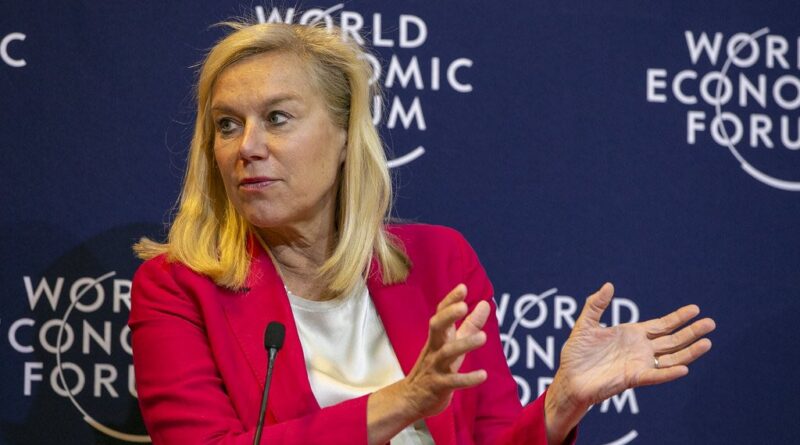Dutch finance minister wants to monitor all payments above 100 euros
Sigrid Kaag, who also happens to be a member of the World Economic Forum, is leading the push for a Central Bank Digital Currency and wants to introduce a law that requires banks to record all payments in excess of 100 euros.
Dutch finance minister Sigrid Kaag wants to require banks to monitor all payments of above 100 euros, as she presses forward on her aim to introduce a Central Bank Digital Currency (CBDC) in the Netherlands.
It is now an openly stated intention of the powers that be – from the Bank for International Settlements to the European Central Bank – to replace cash with digital currencies, and Kaag’s latest aim highlights the degree to which governments want to monitor, track and limit individual freedom when it comes to payments.
COVID-19 has served as the pretext for the introduction of many intrusive establishment objectives, among which digital currency ranks highly. Kaag recently reiterated her desire for a digital euro.
‘Introduction of digital euro is becoming increasingly real’
“During the Eurogroup, a number of member states emphasized the importance of maintaining the momentum for the development of a digital euro and that the project should continue,” Kaag recently stated.
Kaag also wrote a letter in July to the House of Representatives about the progress of the digital euro.
”The introduction of the digital euro is becoming increasingly real. I think it is important that we in the Netherlands, with our innovative and open economy, actively participate in this thinking,” Kaag said, adding that digital currency “has been placed high on the agenda of the Eurogroup partly thanks to the commitment of the Netherlands”.
As with any establishment agenda, it is sold through positive-sounding objectives to divert attention away from its ultimate purpose. In the case of digital currencies and monitoring individual payments, Kaag claims that it is to combat money laundering and tax evasion. Will this also apply to the financial dealings of the upper class? Of course not.
“User privacy should be carefully designed, as should safeguards to prevent the digital euro from being used for money laundering, terrorist financing and tax evasion,” the minister wrote.
Join our Telegram channel here
Experts warn against CBDCs
The thought of CBDCs being introduced is widely rejected in the Netherlands, and financial expert Ab Flipse summarized the perils of such a system.
“We will definitely lose our freedom and our assets if the CBDC is introduced. I appeal to every sane person to resist tooth and nail against this horrific measure. If we don’t, I’ll run away,” Flipse wrote.
100 euro limits
Dutch media Business AM has reported that Kaag is now drafting a law that would require banks to monitor all payments of 100 euro or more.
The outlet has highlighted that such a measure, which would see all transactions above 100 euros stored in a large government-accessible database, would open the door to unprecedented mass surveillance.
WEF links
It should come as no surprise that Kaag is involved with the World Economic Forum as the co-chair of its Global Action Group.
The World Economic Forum is the business-arm of the United Nations that is leading the world into the Fourth Industrial Revolution which would digitalise every aspect of our lives.




